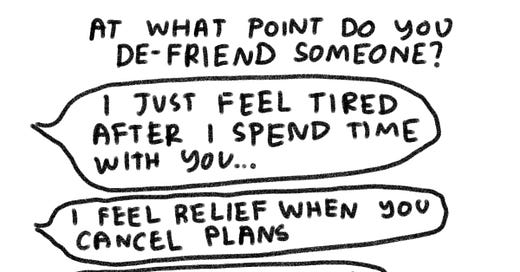This week, I am writing about a sensitive spot. I wanted to write about what I was thinking, but also I want to be respectful that some situations are outside of the realm of forgiveness and understanding. I am talking about transgressions that don’t question anyone’s safety. In addition, it should be noted that I am just a person who spends a lot of ti…
Keep reading with a 7-day free trial
Subscribe to BAD AT KEEPING SECRETS to keep reading this post and get 7 days of free access to the full post archives.



